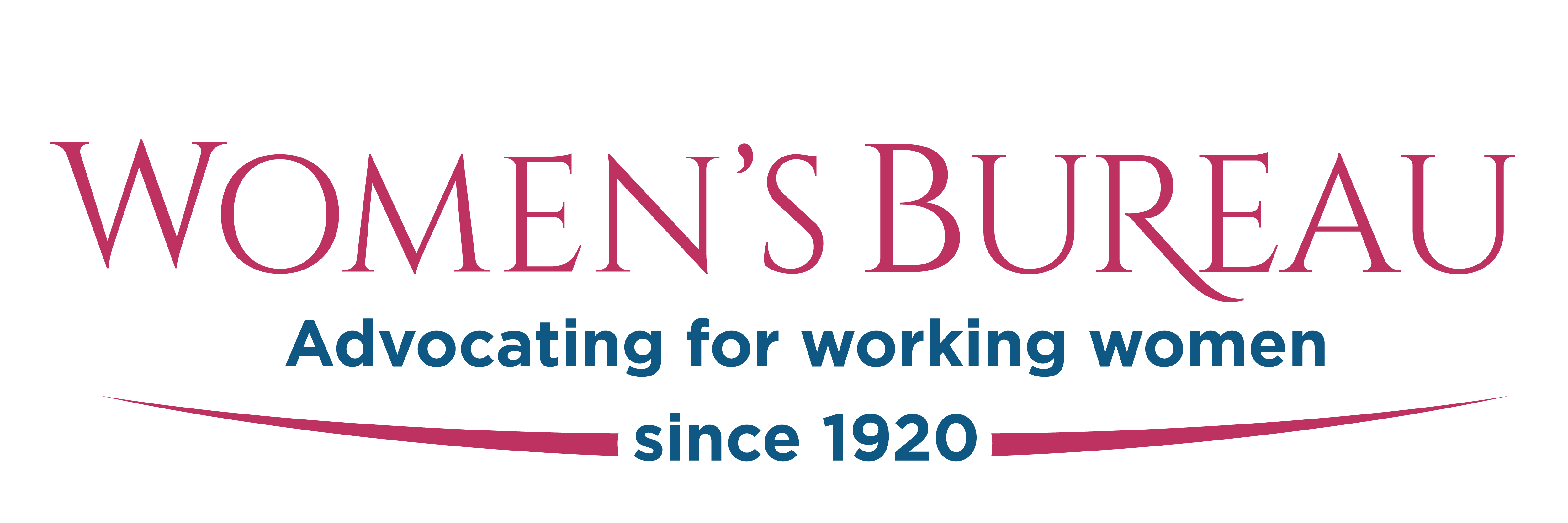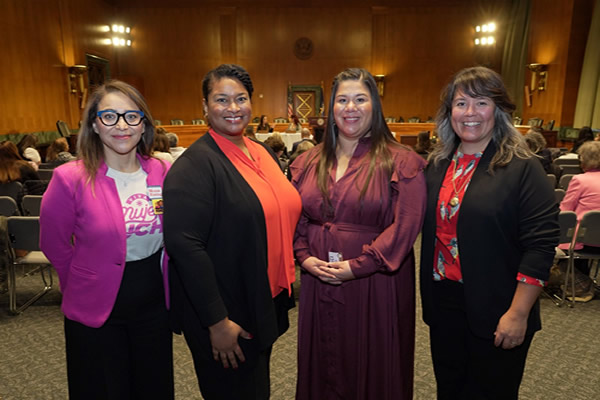
Expanding Protections for Pregnant and Nursing Workers

In late December, the U.S. Senate and House of Representatives passed the omnibus spending bill which includes both the Pregnant Workers Fairness Act (PWFA) and the Providing Urgent Maternal Protections (PUMP) Act. Through the PWFA, workers will receive reasonable accommodations related to pregnancy and cannot be denied employment for needing accommodations. The PUMP Act requires employers to provide time and private space – aside from bathrooms – for all nursing workers to pump breast milk. These laws will provide pregnant and nursing workers the accommodations necessary to help them perform their jobs more efficiently, without sacrificing their own care.
Uniting to End Gender-Based Violence and Harassment in the World of Work
This month, the Women’s Bureau again joined the annual 16 Days of Activism Against Gender-Based Violence campaign to help raise awareness and to call for the end of gender-based violence and harassment (GBVH) in the world of work. Pervasive and persistent, GBVH affects people around the world, where more than 1 in 5 workers have experienced violence and harassment at work.
To mark our continued commitment to ending GBVH and make sure survivors’ voices are represented in advancing public policy, we collaborated with the International Labor Organization on a virtual roundtable entitled, “Uniting to End Gender-Based Violence and Harassment: The Impact of Worker-Centered Education and Awareness.” The roundtable, held on December 7, was the second in the salon series and presented an opportunity to continue our collaborative work to strategize ways to eliminate GBVH. While the campaign, which began on the International Day for the Elimination of Violence against Women on November 25, concluded on Human Rights Day on December 10, we invite you to join us in these ongoing efforts.
- Read the blog
- View the recording of the virtual roundtable
- Watch the video of WB Director Wendy Chun-Hoon affirming the role everyone has to play in eliminating gender-based violence and harassment
If you or someone you know is experiencing abuse, you can call the National Domestic Violence Hotline at 1-800-799-SAFE (7233).
Latina Equal Pay Day

PHOTO (left to right): Xochitl Oseguera, Vice President of MomsRising; Latifa Lyles, Special Assistant to the President for Gender Policy; Mónica Ramírez, Founder and President of Justice for Migrant Women; and Wendy Chun-Hoon, Women's Bureau Director.
On December 8, we recognized Latina Equal Pay Day to bring awareness to the wage gap that Latina women continue to face nearly 60 years after the Equal Pay Act of 1963. There are more than 21.7 million Latinas, 18 and older, in the U.S. workforce. Latinas are overrepresented in service occupations and even when working full time, year round are paid about $11,000 less than the average for all women. To mark this day and advocate for more equitable policies, Women’s Bureau staff participated in several events, including the 2022 Latina Equal Pay Day Summit hosted by Justice for Migrant Women and the Equal Pay Today! Coalition, where WB Director Wendy Chun-Hoon joined the session Beyond the Paycheck. WB Regional Administrator Gina Rodriguez also spoke at the White House Initiative on Advancing Educational Equity, Excellence, and Economic Opportunity for Hispanics event.
- Read the blog on Latinas in the labor force
- See women’s earnings by race and ethnicity as a percentage of White, non-Hispanic men’s earnings
- See annual gender earnings ratio and wage gap by race and Hispanic ethnicity
- Watch the webinar “Jobs and the Economy: Advancing Equity for Latinas in the Workplace”
Cancer Moonshot Week of Action
In February of this year, President Biden reignited the Cancer Moonshot, an effort launched in 2016 to accelerate the rate of progress against cancer. U.S. Department of Labor Secretary Marty Walsh, who is a cancer survivor and a member of POTUS’ Cancer Cabinet, celebrated the Cancer Moonshot week of action earlier this month by sharing new resources to help workers impacted by cancer.
- See the workplace protections for individuals impacted by cancer
- Learn how to talk to your employer about taking time off for family and medical reasons
- Find out what you should know about the Family and Medical Leave Act Certification of a Serious Health Condition
- Read Secretary Walsh’s personal story
International Migrants Day
International Migrants Day, recognized annually on December 18, is a time to both acknowledge the contributions migrant workers make and to advocate for their rights on the job. Joining several other agencies within the U.S. Department of Labor that are working to ensure the protection of migrant workers’ rights, the Women’s Bureau work includes making sure migrant women know their rights and have access to legal protections, particularly advocacy around gender-based violence and harassment.
Improving Working Conditions in Female-Dominated Jobs
On December 13, the Women’s Bureau hosted the second webinar in its two-part equity series, “Tipped Workers in the Restaurant Industry: Challenges and Solutions.” Women represent over two-thirds of tipped workers nationally – employees who regularly receive more than $30 per month in tips – and are hit especially hard by pay inequities, which leave them vulnerable to economic insecurity and sexual harassment, among other issues. WB Senior Advisor Gayle Goldin and Regional Administrator Jill Ashton joined and moderated a panel discussion focusing on solutions to the challenges subminimum wage workers experience in the workplace.
In Case You Missed It

Blog Spotlight
The blog “Want Equal Pay? Get a Union,” co-authored by Women’s Bureau Director Wendy Chun-Hoon and AFL-CIO President Liz Shuler, was one of the Department of Labor’s most popular posts of 2022.

New DOL grant: Nursing Expansion Grant Program
The Department of Labor recently announced $80 million in grant funding to support nursing training programs for future nurses from historically underrepresented populations and underserved communities.
We Want to Hear from You!

“Occupational segregation” is the gendered sorting of men and women into different types of jobs. It leads to women being overrepresented in certain jobs, which are valued and compensated less than male-dominated jobs.
We’ve heard from many working women about their experiences with gendered job expectations, the challenges they face at work, the support systems that help them thrive and the policy changes that would help them succeed. We'd like to hear from you.
Follow the Women's Bureau on Twitter: @WB_DOL

The Women’s Bureau has championed the rights of working women and served as a convener of conversations critical to an equitable economy for women for more than 100 years.
Follow us at @WB_DOL to view our #ThrowbackThursday series highlighting pioneering women, and to learn more about the latest research, initiatives, policies and updates related to working women and their families.
